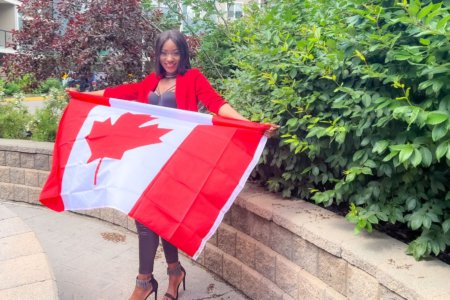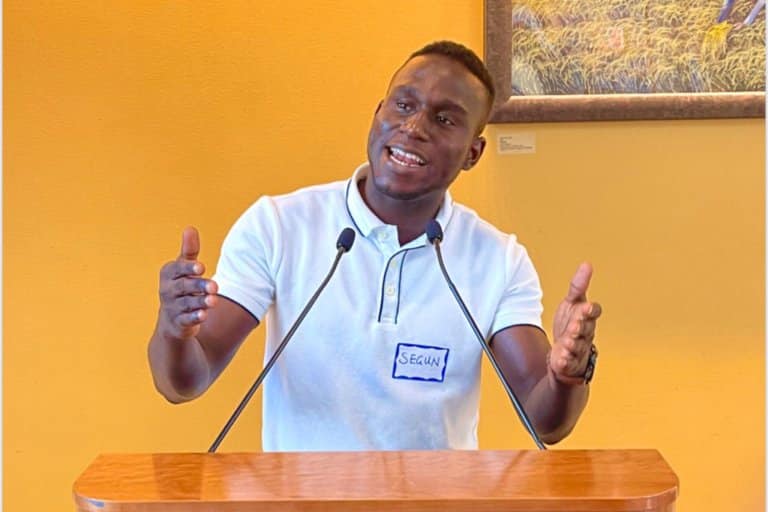
Oluwasegun Fabiyi, currently pursuing a Masters in African Studies at Indiana University Bloomington, knows what it’s like to interact with people from different cultures.
As part of the National Youth Service Corps programme, Fabiyi — who is from the Southern part of Nigeria — was posted up north in Katsina to teach English.
Here, he would learn more about the Fulbright scholarship.
“While I was in college, I knew about three of my professors who were also Fulbright scholars. They used to say it was very prestigious and very difficult to get so I wasn’t really sure if I was going to get it,” Fabiyi tells Study International.
“But while I was doing my national service, I just said, ‘Okay, if I don’t apply [it] is a no automatically, and if I apply, at least I have an option towards yes.’ So I applied.”
With this, he became a Fulbright scholar in 2020. At the University of North Carolina, Chapel Hill, he experienced the full ups and downs of what it’s like to be an international student in the US.
Tell us your first impression of studying in the US.
Chapel Hill is a very phenomenal place. That was my first impression of the US. It will always remain so in my memory because that was my first time coming to the US and staying with an American family, which shaped most of my experience as an international student.
But 2020 was also when the COVID-19 pandemic struck and I couldn’t travel. I had to wait and that pushed my plans to study abroad. Most of my classes were online so people didn’t really care whether you are Black or an international student.
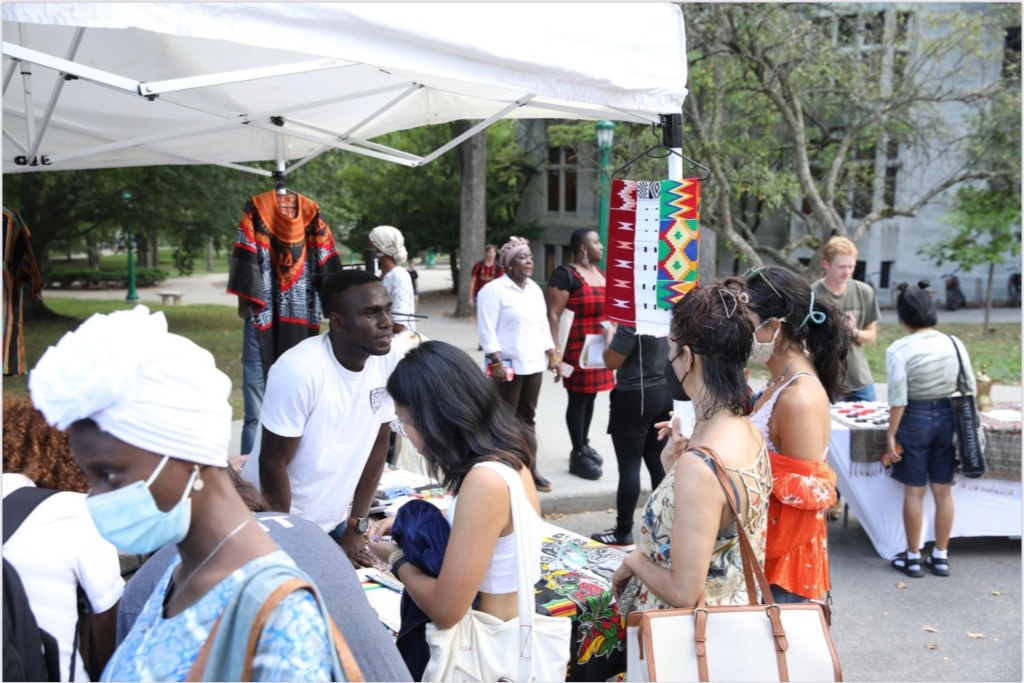
Fabiyi is an Associate Instructor at the Hamilton Lugar School of Global and International Studies and is one of the two recipients of 2022-23 Tsao Eoyang-Lee Fellowship. Source: Oluwasegun Fabiyi
What do you do at Indiana University Bloomington?
I am an associate instructor, teaching the Yoruba language. When I am in my master’s programme, I am both a student and an associate instructor. In other schools, they will use the term teaching assistant or graduate assistant.
If I don’t teach in a particular semester, I act as a researcher or a graduate assistant.
Did you feel any different being on and off campus as a Black international student?
Most times, you don’t experience racism within the school setting. You experience racism outside the school setting.
Within the school setting, we find so many people [who] are educated or enlightened. In fact, the school policies punish those who are being racist towards other people.
Outside of school, I played soccer. I was playing against people who were working or those in the streets. Not all of them were in college. It’s a different ballgame.
There is also a difference between the African-American experience and the African experience, which is something that is difficult to explain in words.
How did your race affect your experience as an international student?
On campus, I’m not going to say that this is racism, but it’s more like a deficiency of knowledge. Sometimes, people think: “Since you are all Black, you should know each other.”
That’s not the case. Africa is a continent. There are 54 countries in Africa, so I wouldn’t know another South African or Liberian.
Another example — which is not my personal experience — comes from another African. In the US, stores would give coupons to people they believe cannot afford to make certain purchases.
As she was about to pay, the cashier mentioned something along the lines of “we don’t accept coupons,” which caught her by surprise.
I feel like that is an indirect way of being racist. This happened in another city and not in Bloomington.
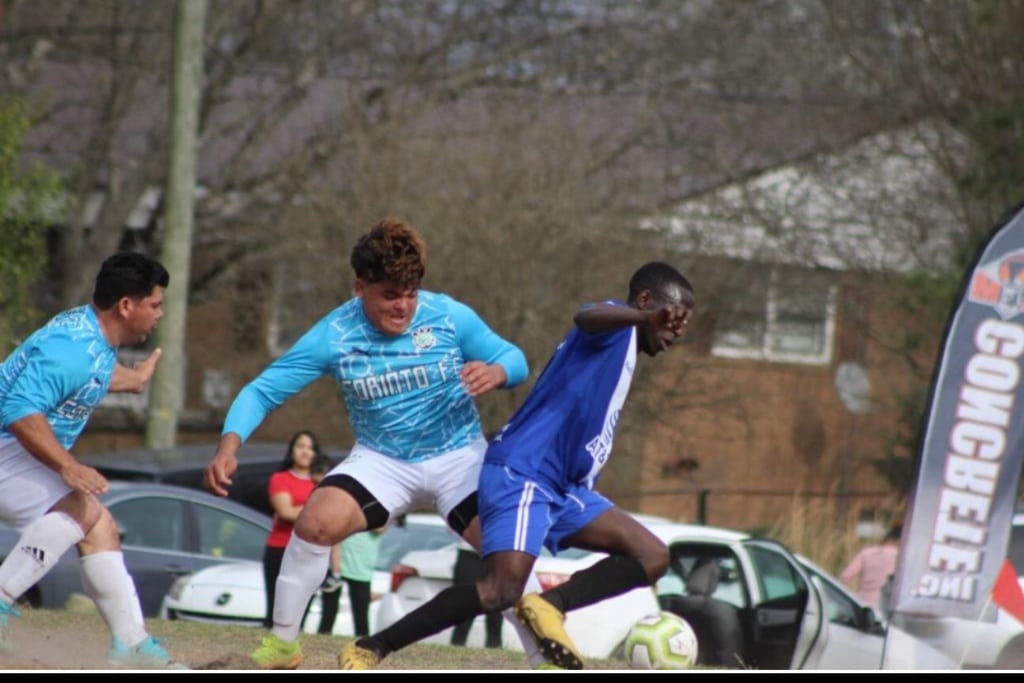
Fabiyi in a soccer match in Raleigh, North Carolina in spring 2021. Source: Oluwasegun Fabiyi
Did you experience any racist encounters while studying abroad?
This happened while I was playing soccer, and the person who did this was a student. He called me “blue face,” which I felt would have been more racist if he said “Black face.”
We were playing soccer and the kind of soccer we were playing was competitive. The young guys have a more dynamic play.
One of the players we were playing against got frustrated and they thought they could just get us by our feet, so they started kicking us.
I started to confront one of the guys who kicked me and he yelled, “get out of the way, you blue face.” Some of my teammates — who were white — were a little surprised by that comment, but it didn’t sound like a racist remark to me.
How does Indiana University Bloomington support students who are experiencing racism?
We have the Indianapolis Metropolitan Police Department. Indiana University Bloomington is also such a phenomenal place that there are various lines for students to call that is not only limited to just racist attacks.
Most of my friends have not heard of a professor being racist to a student or group of students because they tend to be very serious about these kinds of things.
They understand that this place is very white dominated, so they want to build trust as much as possible to make it more welcoming to students.
On the other hand, I have heard of friends in other schools who feel like their professors are not trying to listen to them, or they see it as a way of being racist.
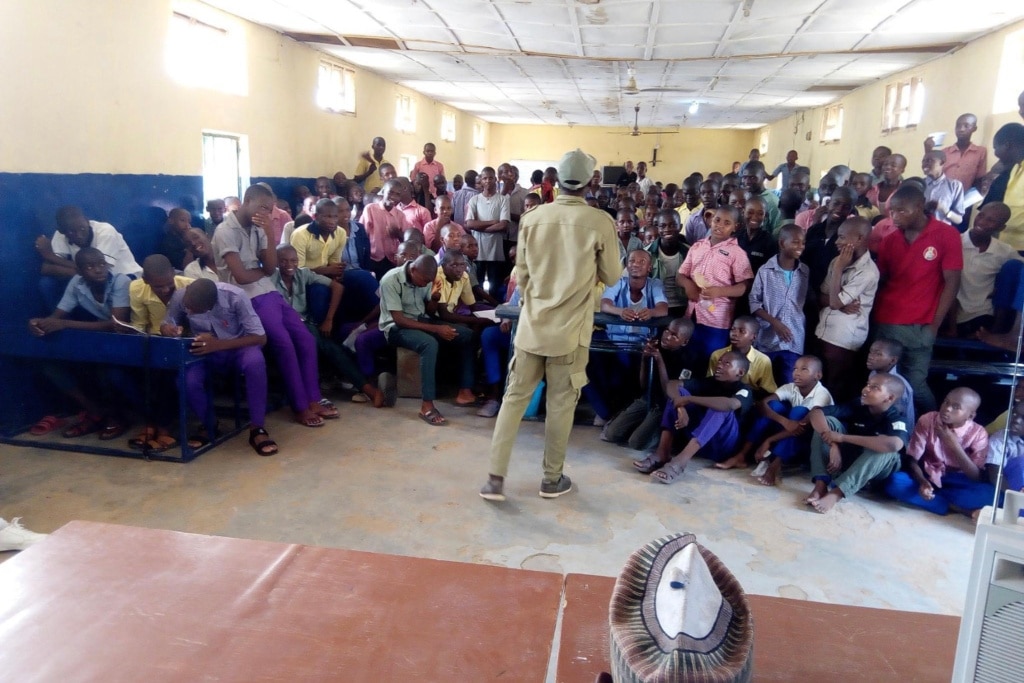
In 2019, Fabiyi was a National Youth Service Corps Member in Katsina State, Nigeria. He is seen motivating the boys on the importance of their education. Source: Oluwasegun Fabiyi
Did you have any expectations or fear about how you would be treated while studying in the US? If so, why did you choose to study in the US anyways?
Personally, I feel like there is no place for you to go to where you won’t probably meet some share of racism. I previously mentioned that I wanted to serve in another part of Nigeria. The fact that we are all Nigerian in that setting does not make us the same. At the back of my mind, I always find myself where I am no different from others.
Even if I am staying in Nigeria, there will be another Nigerian who is not from my tribe that speaks Yoruba. Some people can speak Igbo and Hausa. So I got used to the idea that not everyone will be able to understand my language, but there should be a common ground.
Currently, I am the President of the Graduate Students in African Studies. Most times, I represent the voices of Black people. In a real sense, I am a representative of this community, so if anyone ever tried to be racist towards me, it would be saying they are racist towards every other Black person.
We shouldn’t also generalise the fact that there is racism in every part of the US. Certain parts, like the regions in the South, have had historical tension between Black and white people. Both Bloomington and Indiana are in the mid-West, which is historically white.










